Gradhoc
Food Industry Software:
cooling technology
Smart refrigeration, cooler future
Request a demo or a quote
Request a demo adapted both to your sector and to your digital transformation process.
The food industry is one of the primary sectors with significant refrigeration needs, currently undergoing a substantial digital transformation. This sector not only requires cooling but also demands that the refrigeration process be as energy-efficient as possible, while also adhering to environmental sustainability. This necessity arises both from consumer expectations and regulatory requirements.
Refrigeration can account for up to 80% of the total energy cost
Gradhoc
Food Industry
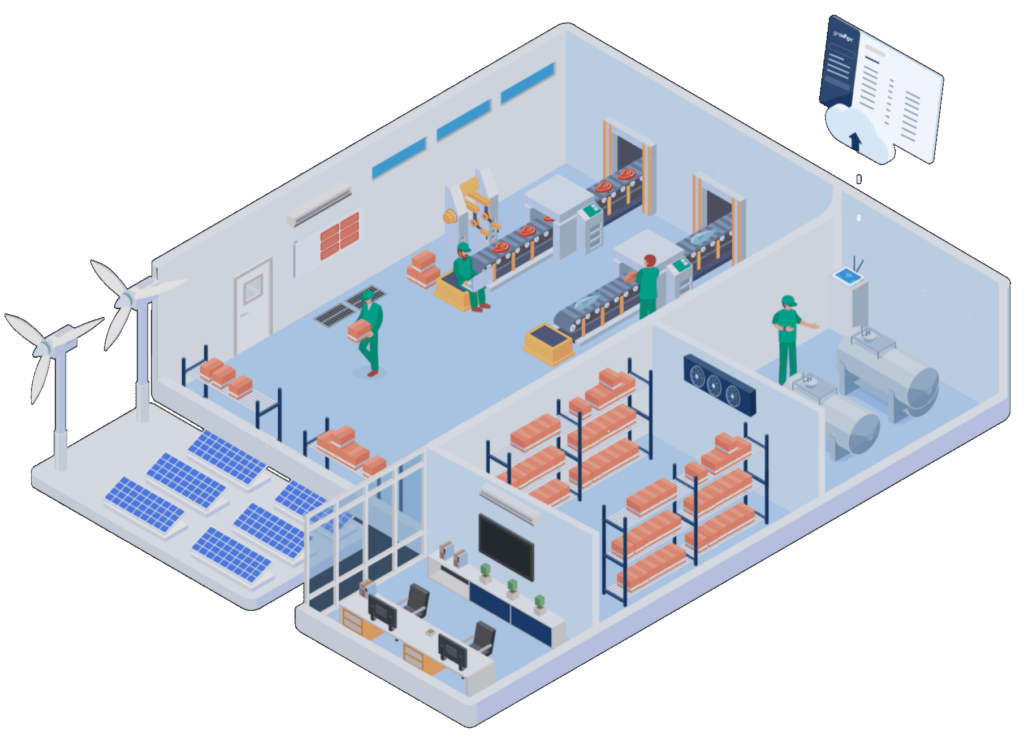
The next frontier is an energy and operational strategy driven by artificial intelligence, supported by cutting-edge food industry software. This evolution is embodied by Refrigeration 4.0, which shifts from traditional, field-based maintenance without data to a system where 70% of actions are automated and preemptive—occurring before equipment failures happen.
By leveraging the latest food industry software, companies can stay ahead of the curve, achieving cost reductions, minimizing production downtime, optimizing resources, and ensuring compliance, efficiency, and sustainability in an ever-evolving landscape.
Food safety plays a vital role due to its direct impact on public health. Building consumer confidence is essential, which means the prevention, elimination, and mitigation of risks throughout the entire value chain—from producer to consumer—must be prioritized.
The food industry also relies on maximum efficiency in its production processes, striving to minimize energy consumption and maintenance costs.
New technologies and innovative food industry software solutions are driving improvements in efficiency, sustainability, and, above all, competitiveness in the sector. Leading-edge refrigeration solutions, such as NH₃ and CO₂ systems, are among the most efficient on the market. However, as refrigeration technologies mature and theoretical efficiency improvements plateau, companies need to adopt new strategies to continue advancing.
Execute 70% of predictive maintenance actions online
Reduce field corrective interventions from the current 100% to 30%
Gradhoc
We understand your concerns
Many of the primary challenges faced by the agri-food sector are related to resource efficiency, infrastructure, and facility management, all of which have a direct impact on the safety of the food supply chain.
In particular, refrigeration systems in the food industry often fail to operate optimally and efficiently. Maintenance is primarily corrective (performed after a failure) and is carried out manually 80% of the time. To address these challenges, food industry software can play a key role in improving system performance.
We categorize these challenges into five key areas: food quality and safety, production, maintenance, energy efficiency, and environmental impact

Food quality & safety
Production
Maintenance
Energy

Environment
Food quality and safety


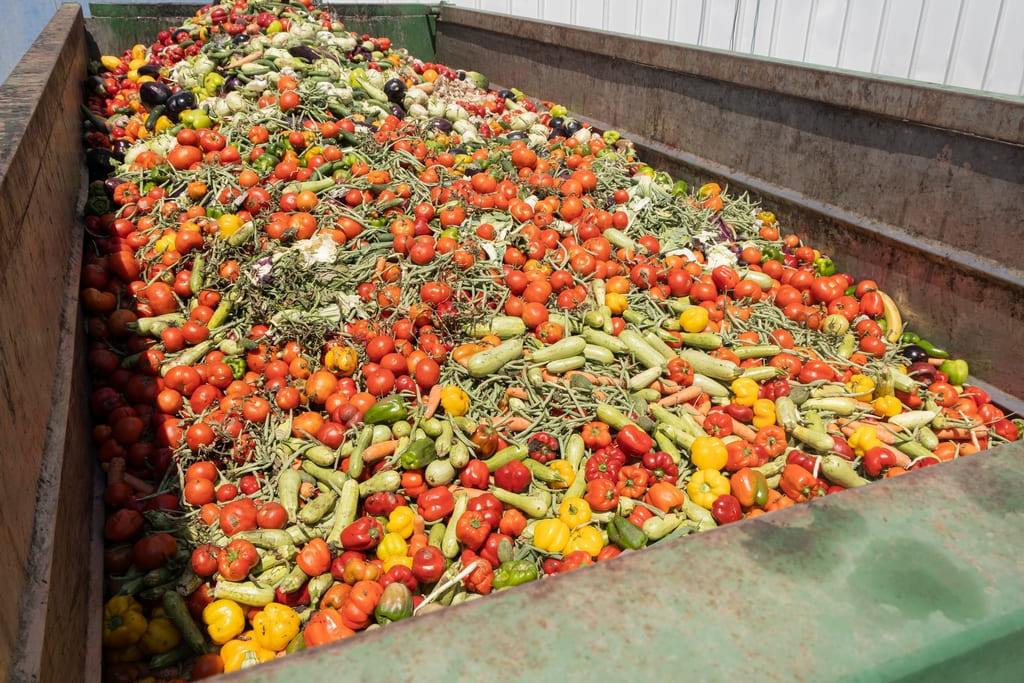

Production


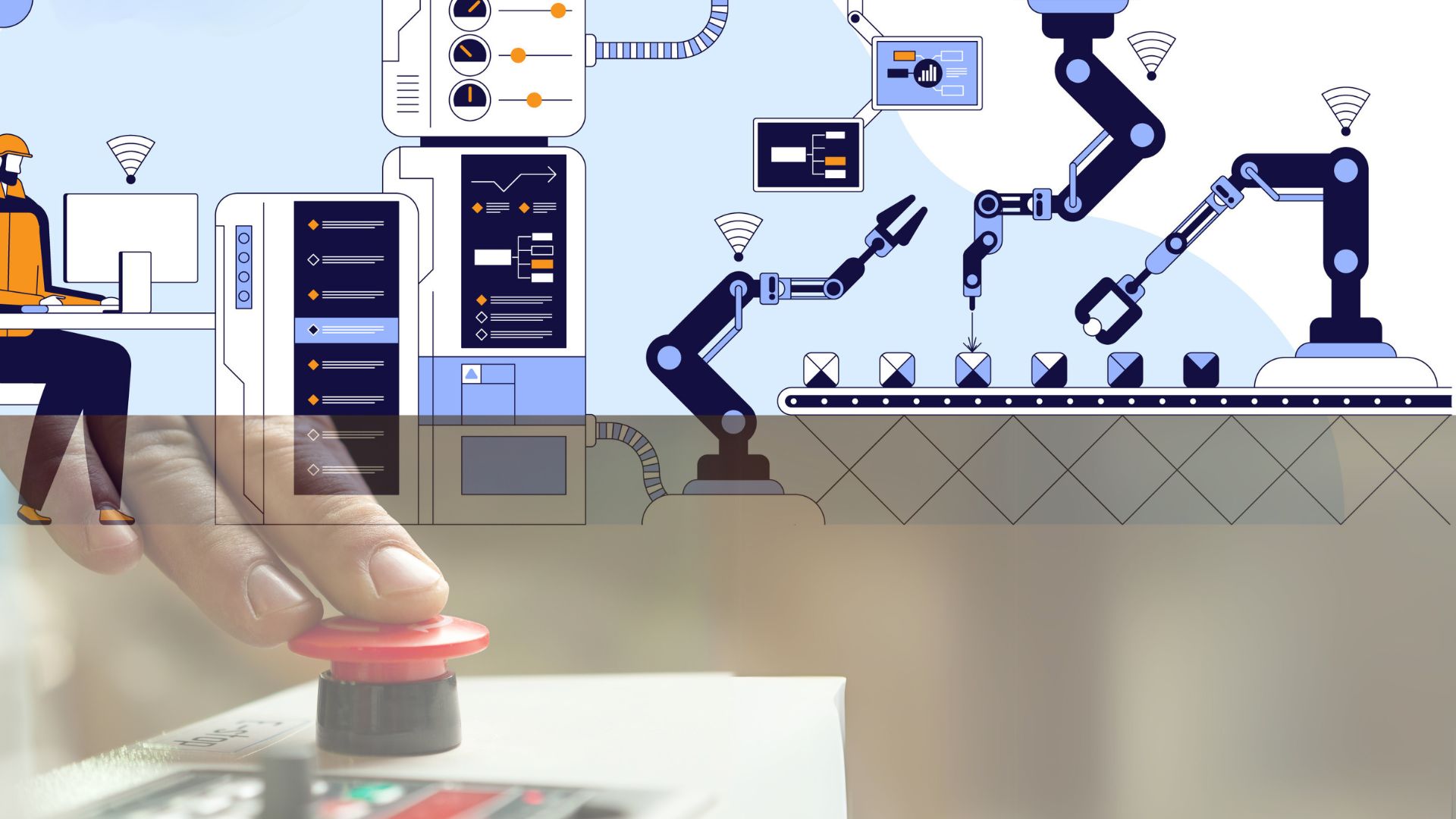
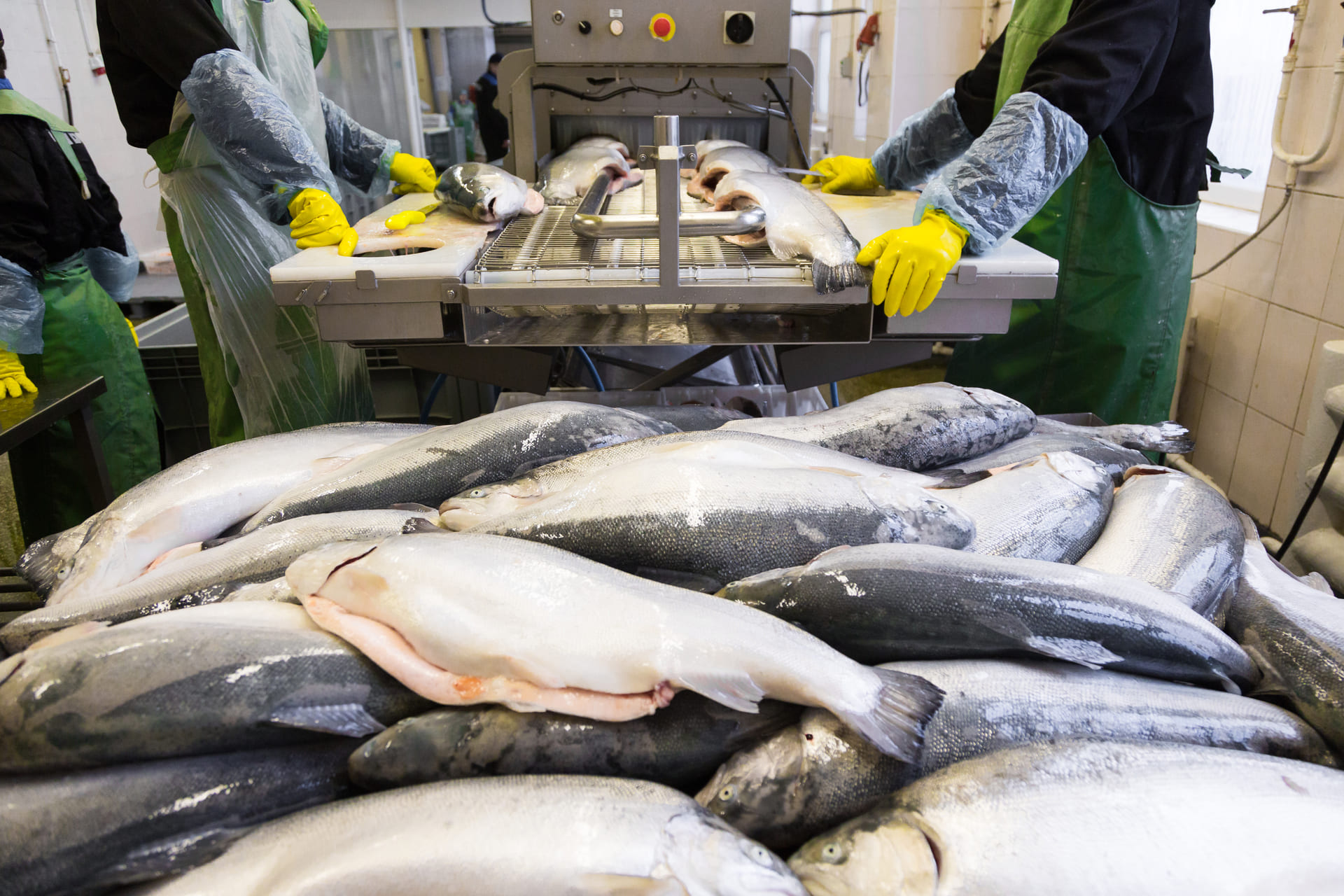
Maintenance


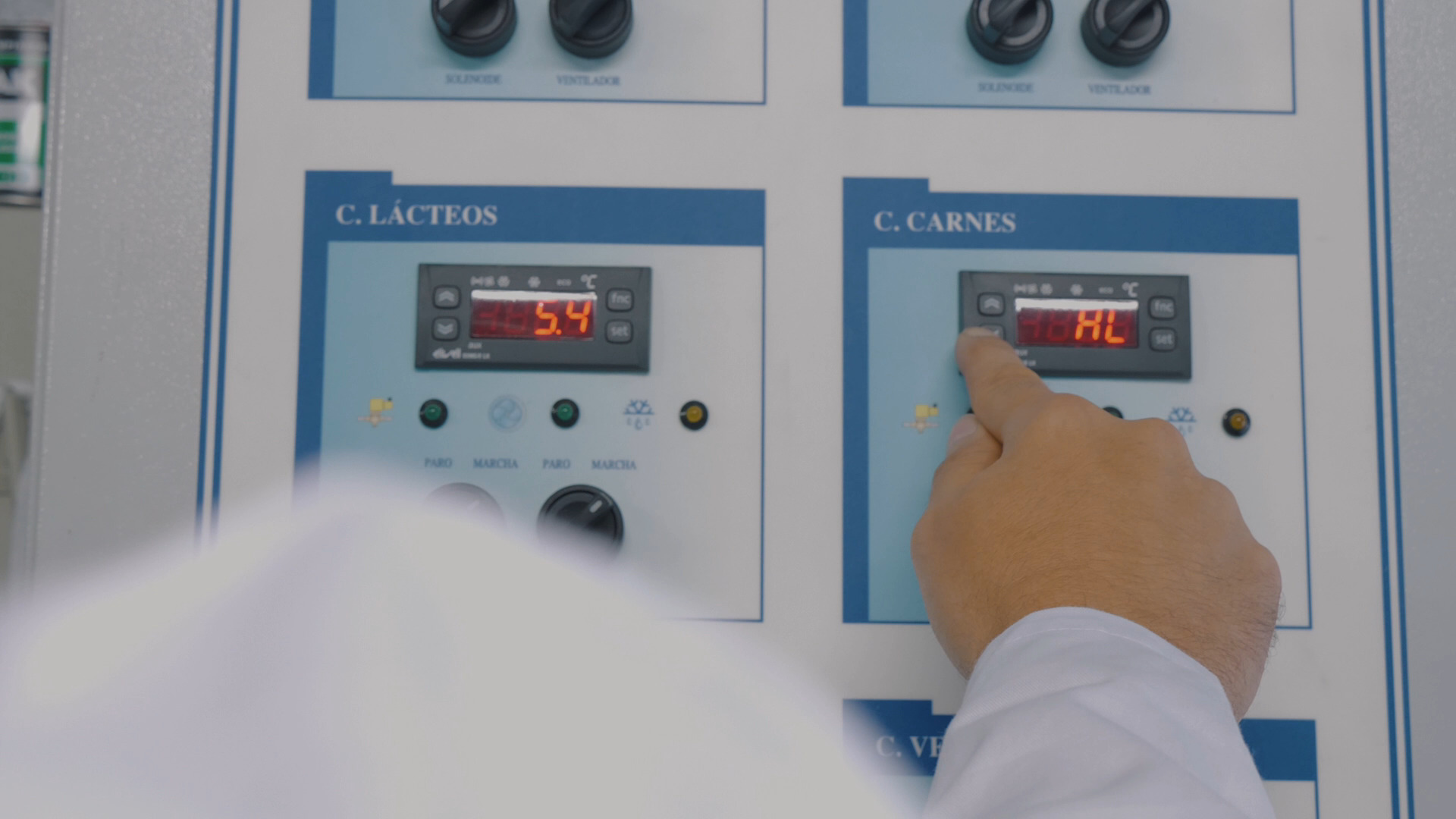

Energy


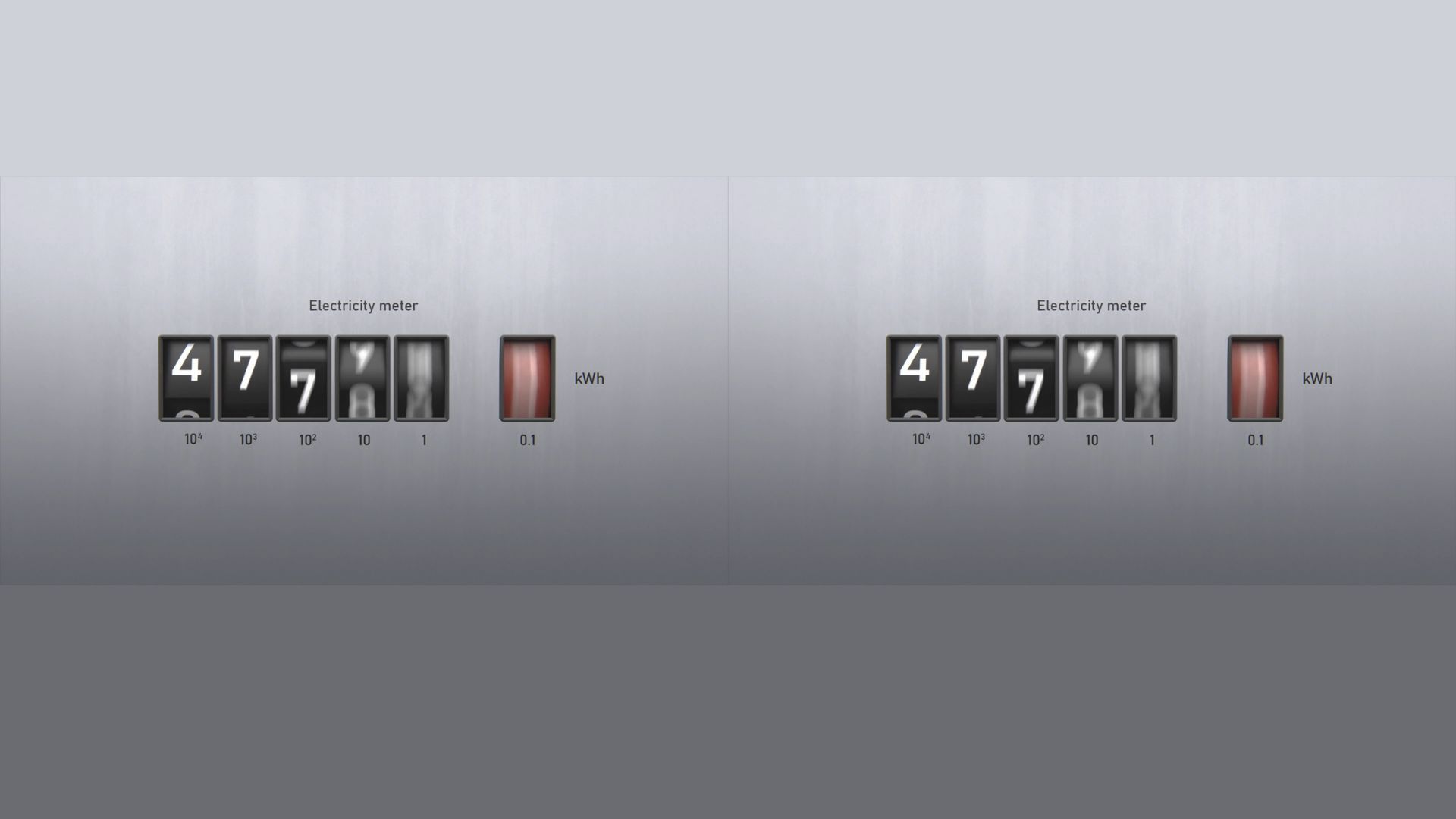

Environment




Gradhoc
With Gradhoc you overcome these challenges
Gradhoc offers you all these advantages to overcome your current and future challenges.
Companies in the agri-food sector exhibit a high level of sensitivity to any intervention that could potentially compromise food safety within their value chain. Gradhoc possesses the necessary experience and history in this sector to address this challenge with confidence.
Gradhoc is a cloud software that optimizes the operation of the refrigeration installation and performs predictive maintenance, acting automatically before the failure occurs.
Gradhoc
Applications in food industry
Primary food sector (meat industry, slaughterhouses, fish markets, fruit and vegetable distribution centers, etc.), as well as the processed food sector (dairy industry, seafood processing, meat and poultry processing, canning, beverage production, among others).
Software features
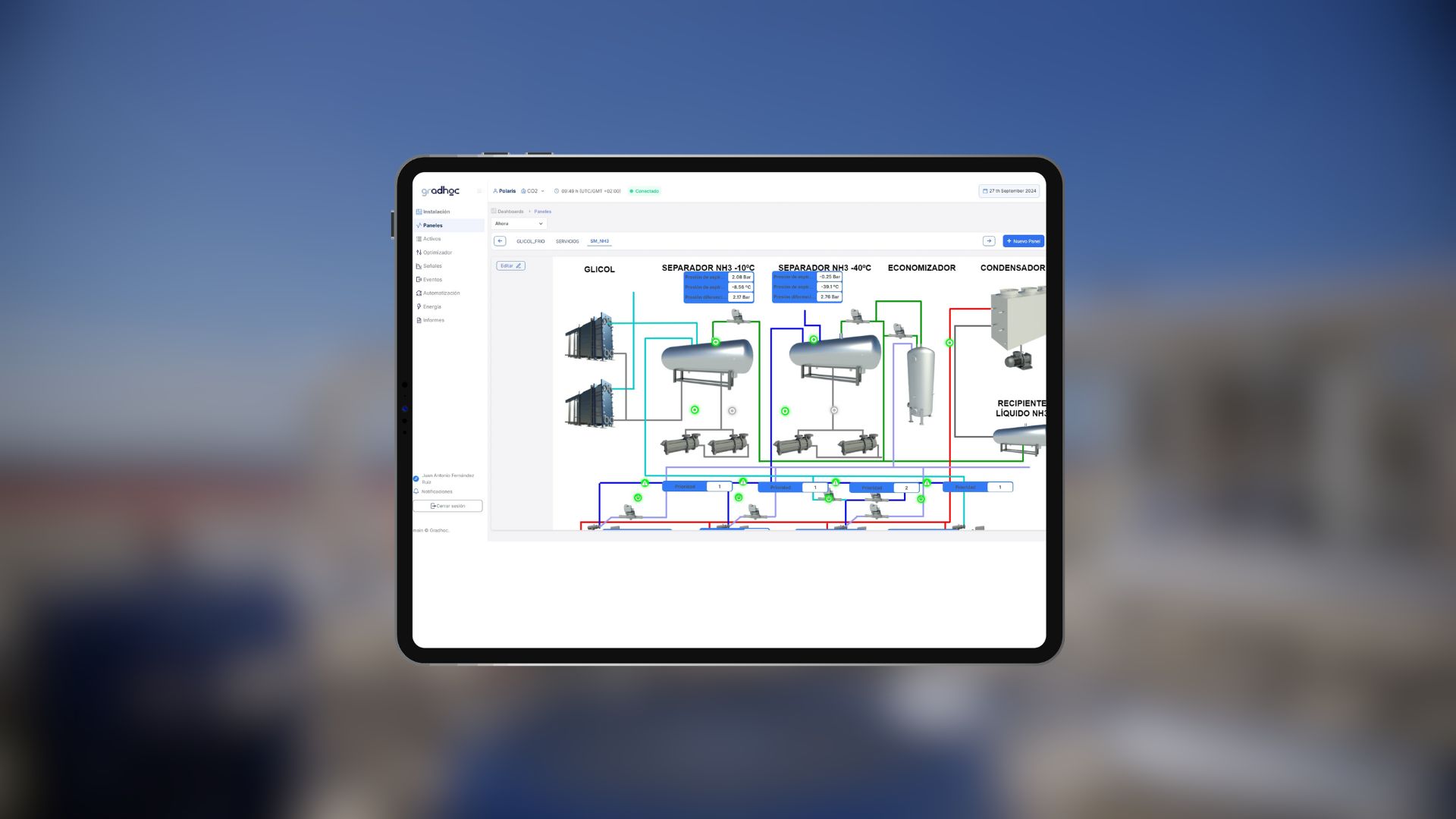
Real-time monitoring and data records. Asset management
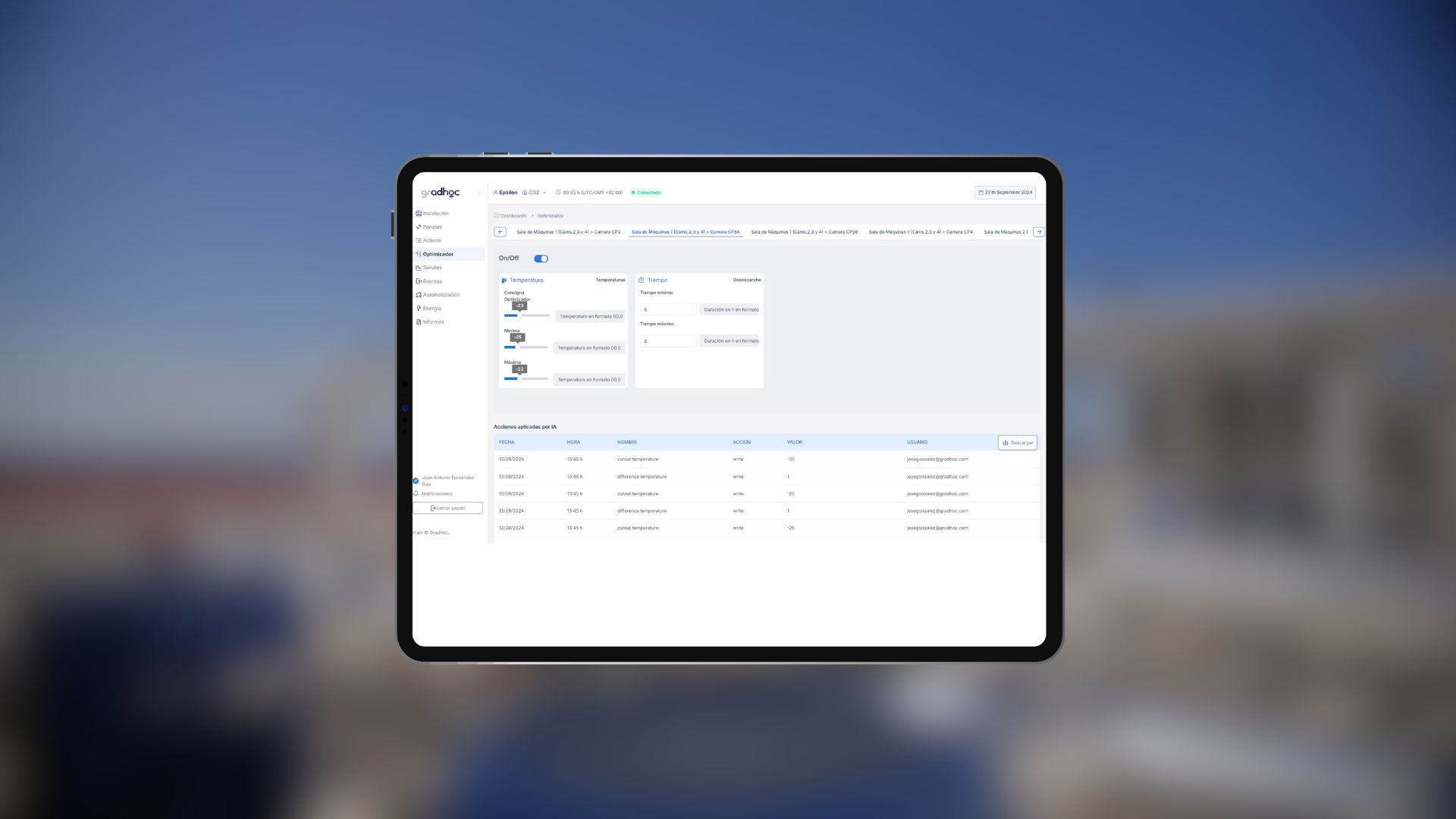
Adaptive temperatures according to the real-time requirements of a specific refrigeration system
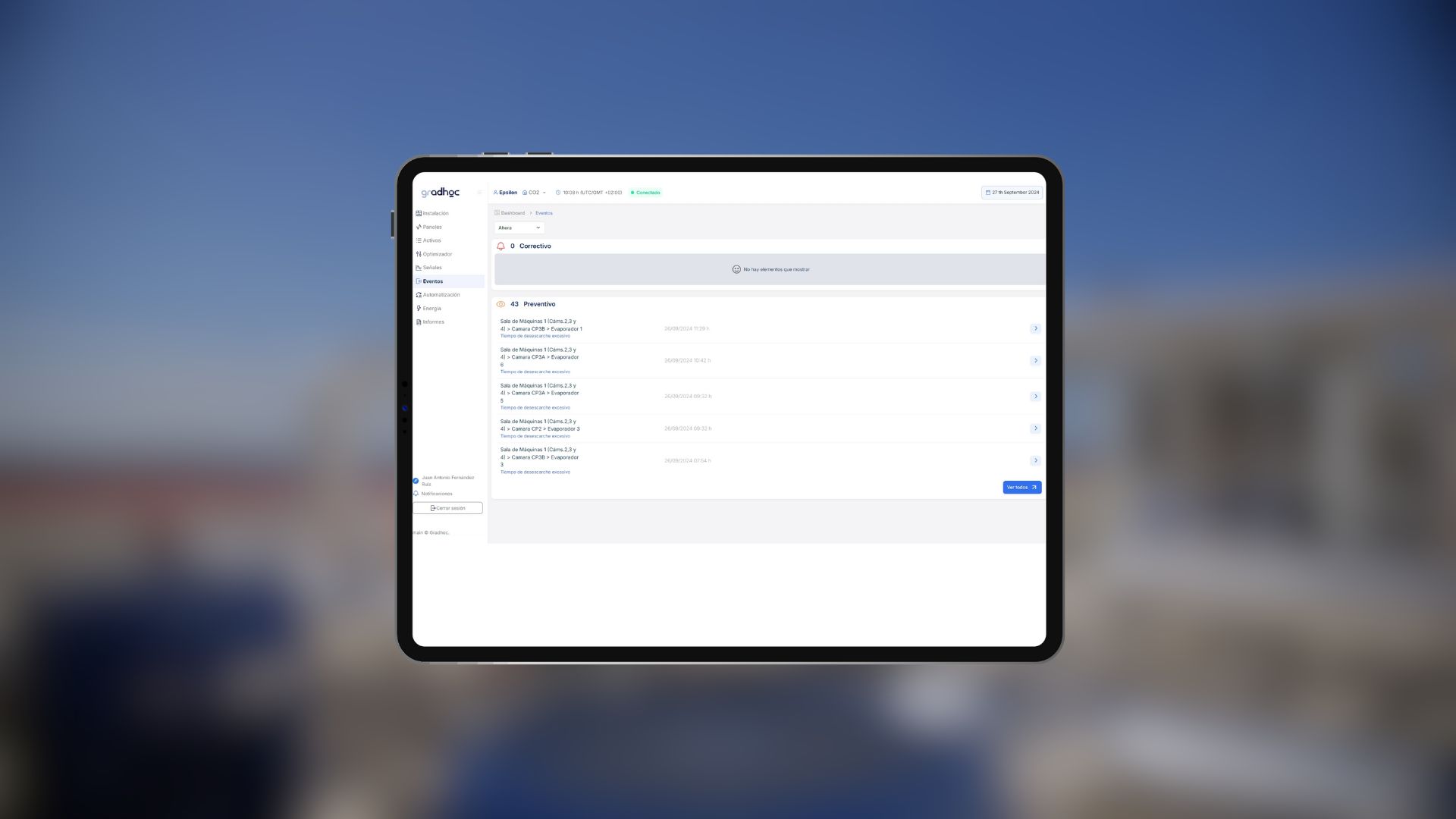
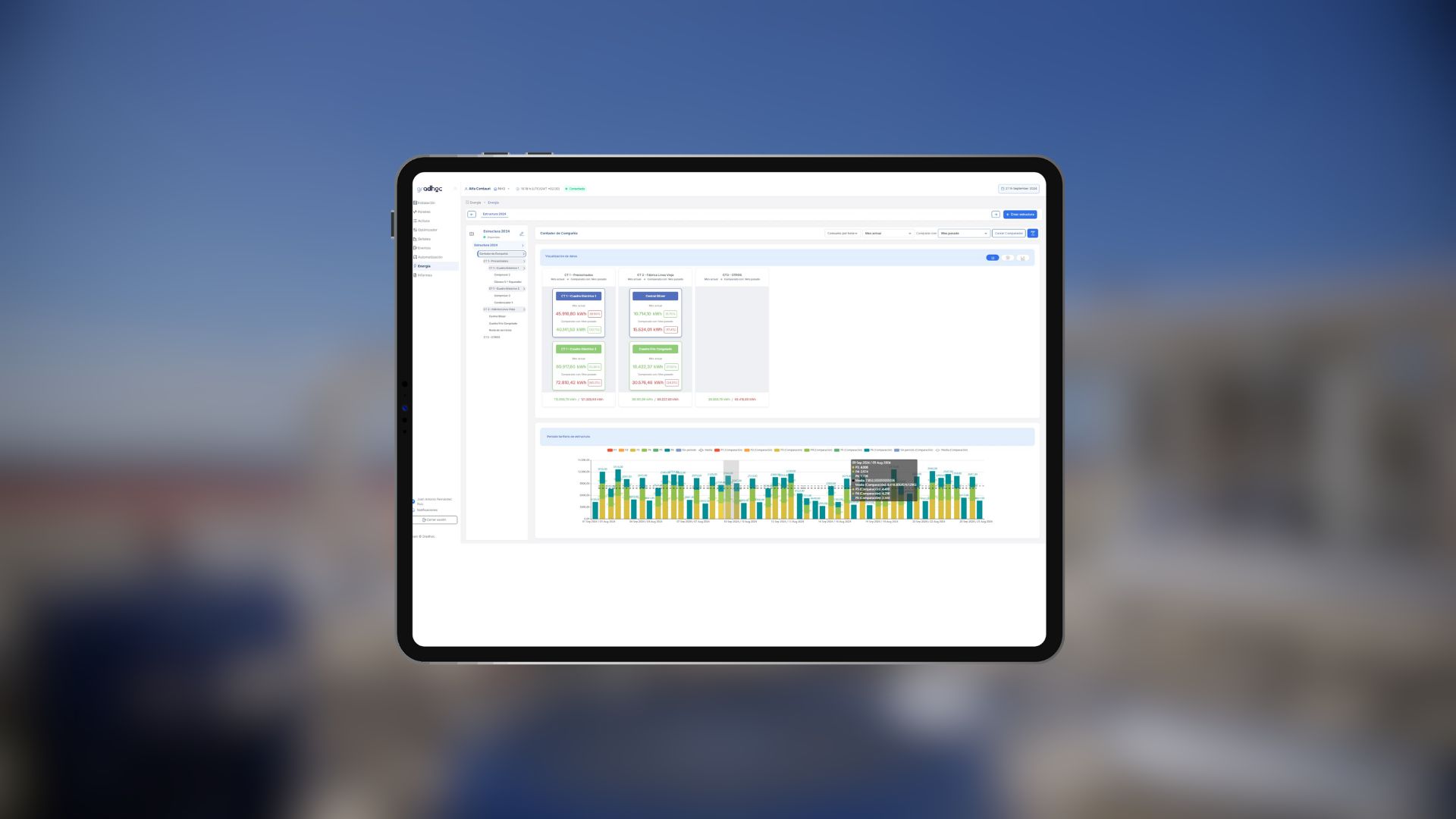
Customized screens displaying the energy consumption. Predicting electric expenses
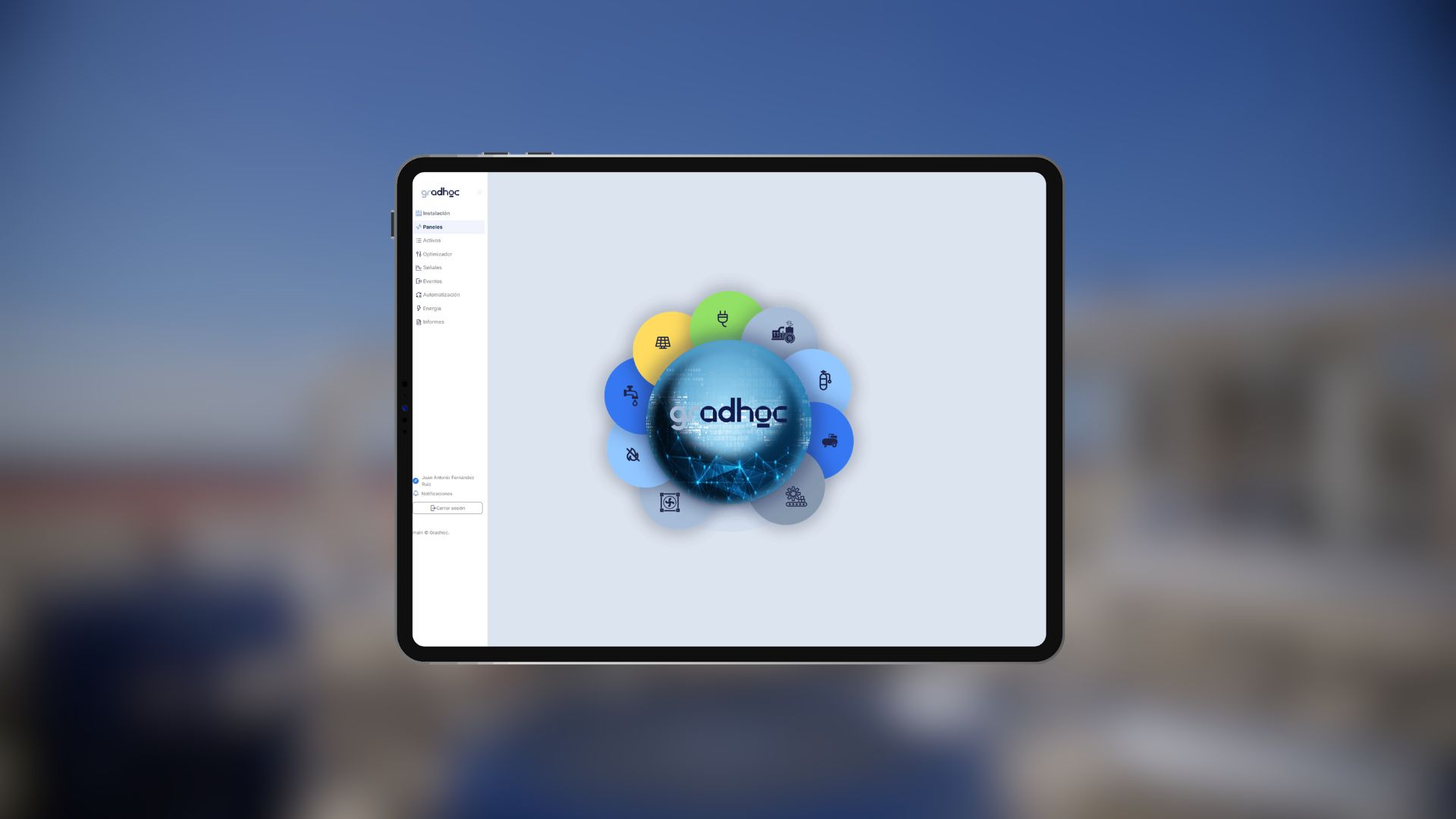
Gradhoc can integrate other energy and process variables: photovoltaic...
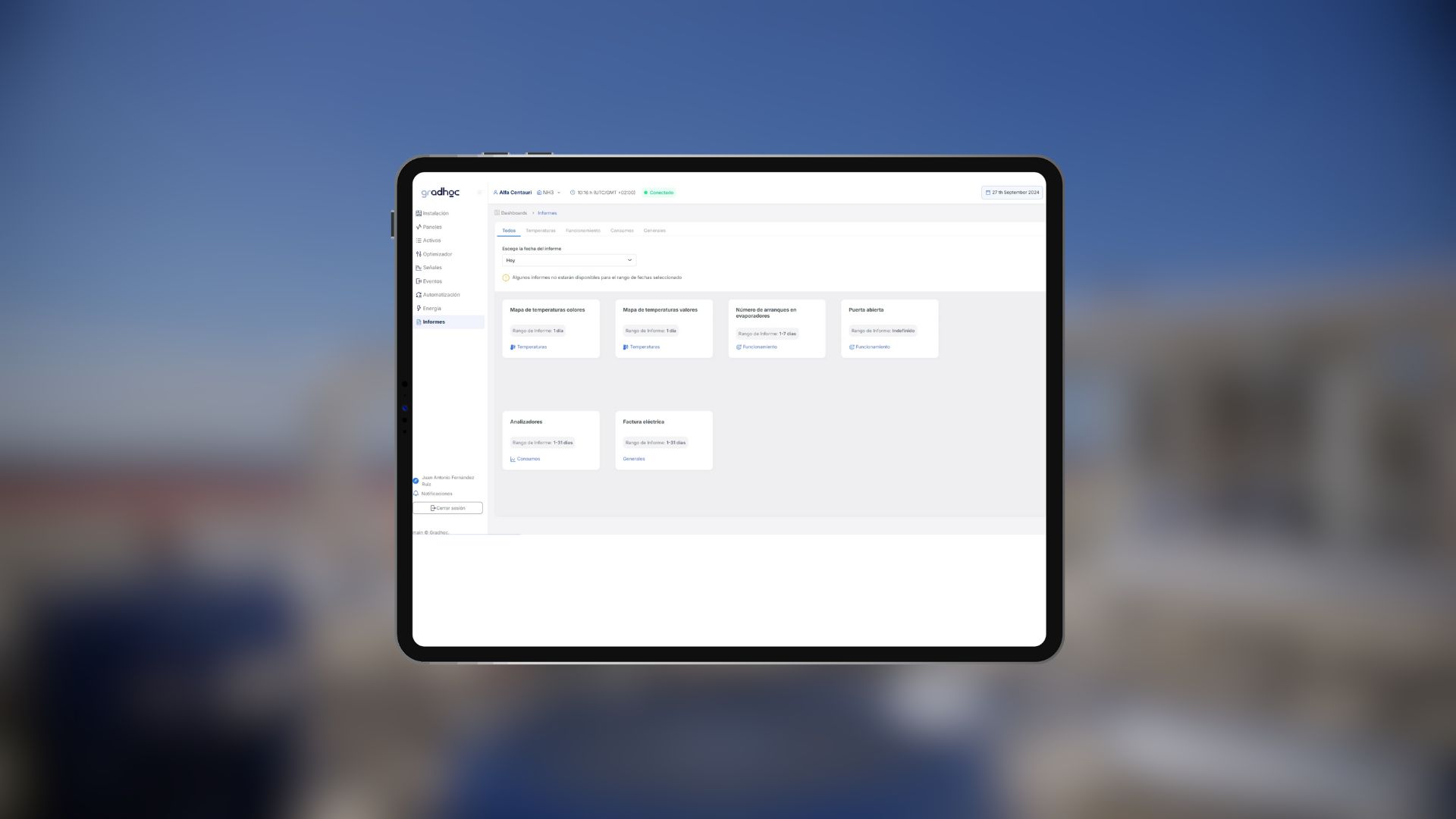
Predefined and ad hoc reports. Your industrial plants on a single control panel.
Gradhoc
Revolutionizing the Food Industry with Advanced Software Solutions
In today’s highly competitive and regulated market, the food and beverage industry faces unique challenges in maintaining efficiency, quality, and compliance. Advanced food industry software solutions are becoming critical to meet these demands, enabling businesses to streamline operations, ensure traceability, and drive sustainable growth.
The adoption of software for the food and beverage industry is transforming traditional operations into data-driven ecosystems. From production to distribution, these tools optimize processes, enhance decision-making, and ensure adherence to stringent safety and quality standards. Key functionalities include:
Compliance with global food safety standards such as HACCP, ISO 22000, and FSMA is non-negotiable. Food industry software helps organizations stay ahead of regulations by automating documentation, audits, and reporting. Additionally, it plays a pivotal role in sustainability efforts, tracking energy consumption and resource utilization to minimize environmental impact.
Advanced analytics and cloud-based solutions empower businesses to gain actionable insights from their operations. Predictive maintenance, demand forecasting, and consumer behavior analysis are just a few examples of how modern food and beverage software enables companies to stay agile and responsive.
Digital transformation in the food and beverage industry is no longer optional—it is essential for survival and growth. Companies investing in comprehensive software solutions for the food industry can expect improved productivity, reduced operational costs, and enhanced customer satisfaction.
By integrating technology at every stage of the value chain, businesses are not only meeting current demands but also preparing for the future of a dynamic and ever-evolving market.
Is your organization ready to embrace the potential of food industry software? Partner with technology leaders to unlock new possibilities for innovation and efficiency in the food and beverage sector.
Gradhoc
Will you prepare for change?
Fill out the form to request a demo or a quote